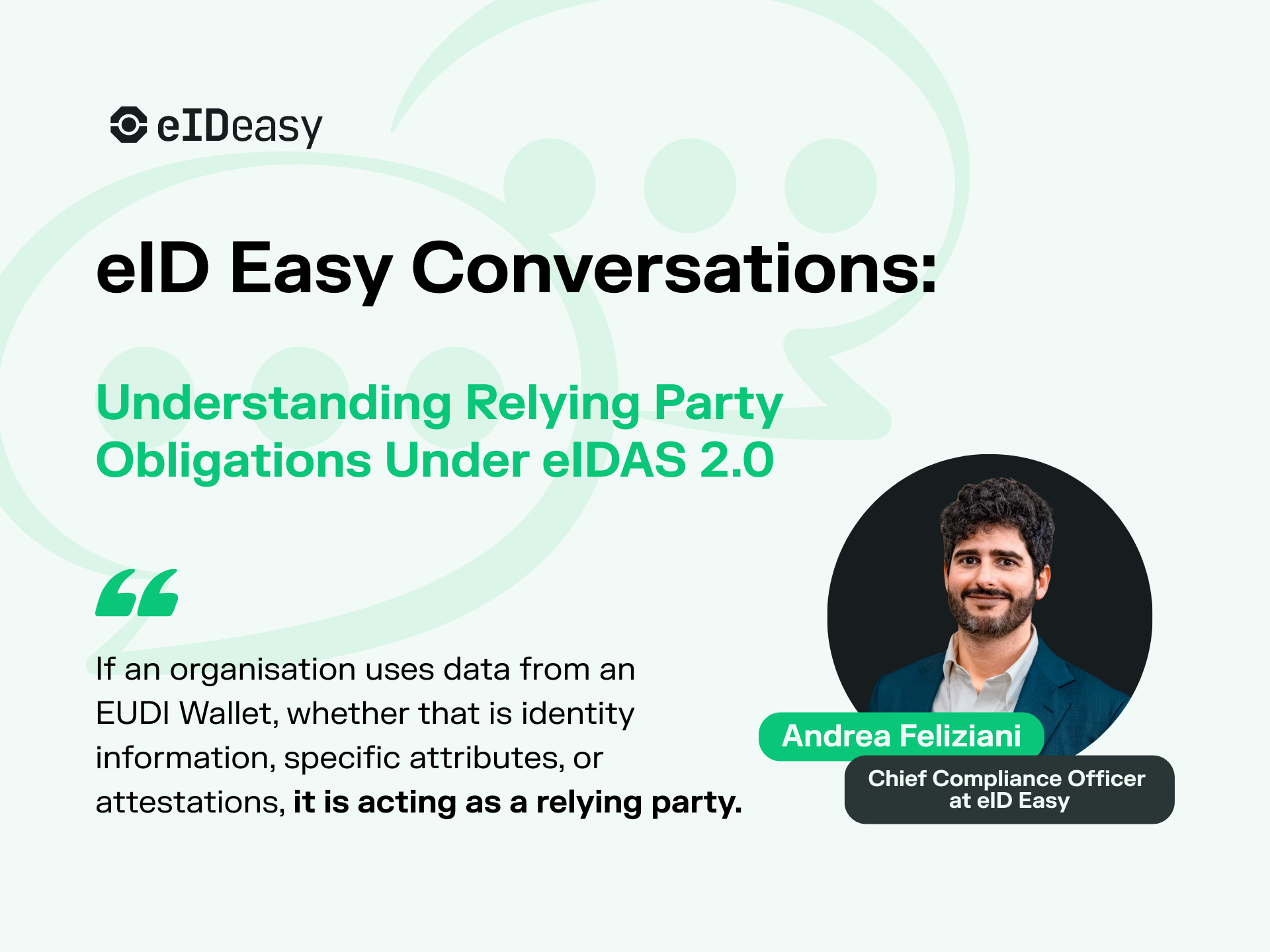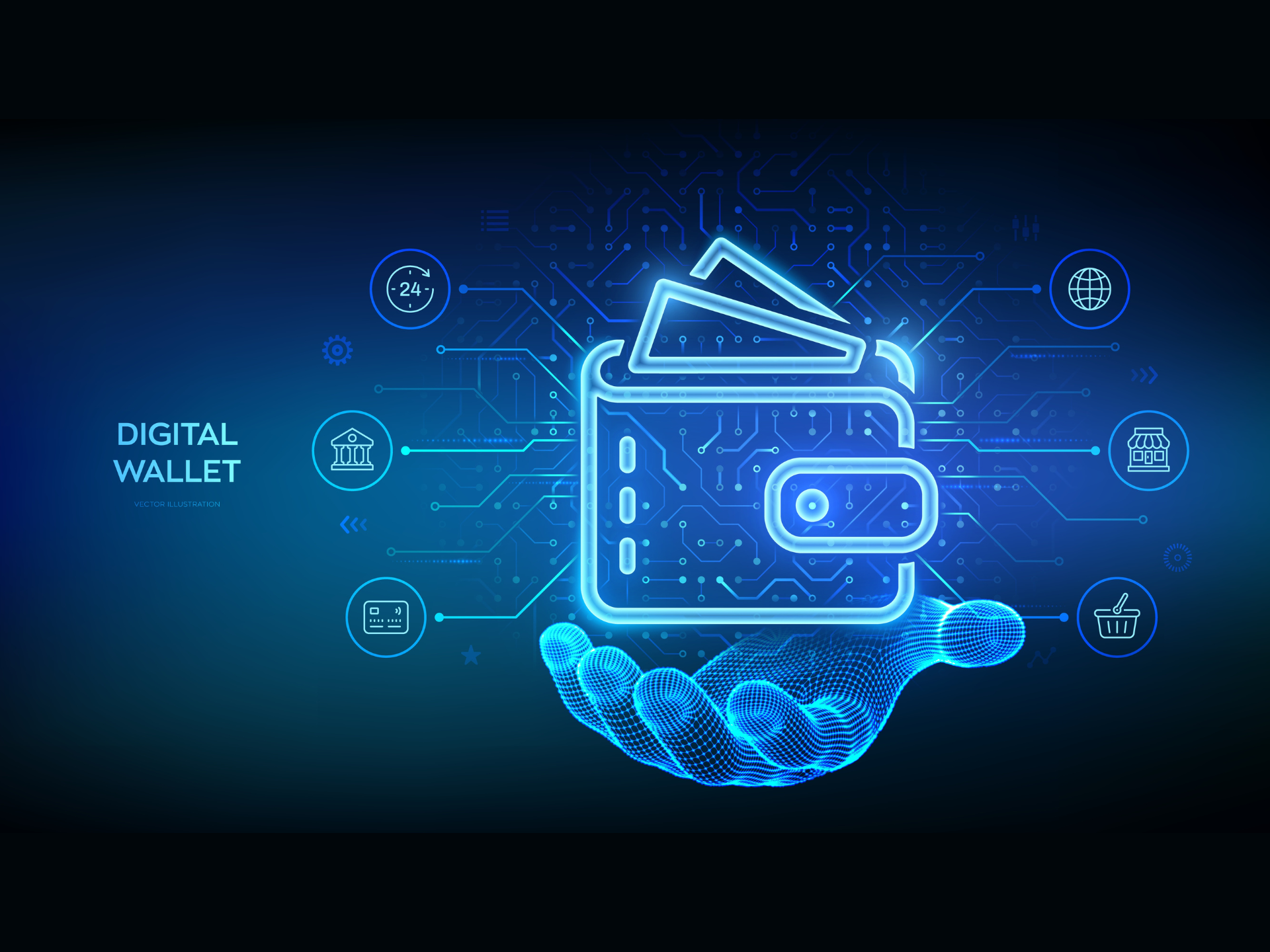The need for secure and legally binding electronic signatures is growing in today's digital world. One solution that stands out is the Qualified Electronic Signature (QES). Today we’ll sit down with Margus Pala, co-founder of eID Easy to delve deeper into what QES means, how it works, and why businesses worldwide are increasingly adopting it. The following represents his view on Qualified Electronic Signatures, and why they are taking off.
What Is a Qualified Electronic Signature?
A Qualified E-Signature is the most secure and legally recognized digital signature form. In the European Union, it’s treated the same as a handwritten signature. That means, it can replace paper-based signatures in most situations.
“If you want to move from paper to digital while ensuring your signatures remain legally valid, QES is the way to go,” Margus explained.
The strength of QES lies in its strict identity verification process and adherence to the highest international technical standards. This ensures the signature is unique to the person signing and cannot be tampered with.
How does QES differ from Advanced Electronic Signatures (AdES)?
While QES is incredibly secure, this level of protection comes with additional requirements:
- Strict Identity Verification: The liability for QTSPs is much higher for QES. Providers must ensure users are thoroughly verified, often requiring multi-step processes.
- Certificate Storage: QES certificates must always be stored in QSCDs, which ensures a higher level of security but adds complexity.
- Two-Factor Authentication: Signing with QES typically requires 2FA, such as a combination of a secure PIN and biometric verification, while AdES requires 1FA, like a password.
Who Needs Qualified Electronic Signatures?
QES is ideal for:
- Businesses looking to reduce risks:
Qualified E-Signature guarantees legal validity by default, making it reliable for use in court or other legal contexts without needing extra proof. - Regulated industries:
Some industries, like HR, public procurement, or finance, require legally binding signatures. “The law often says a contract needs a ‘handwritten form,’” Margus said. “But QES fulfills that requirement digitally, making it perfect for contracts, tenders, or employee agreements.” - Global businesses:
Companies working across multiple countries benefit from QES because it’s recognized internationally, reducing the need for country-specific solutions.
How Does a Qualified Electronic Signature Work?
Margus outlined the process in two simple steps:
- Getting a Digital Certificate:
To use a Qualified Electronic Signature (QES), you need a digital certificate tied to your verified identity. A Trusted Service Provider (TSP) handles this, a certified entity that ensures the certificate's security and accuracy.
Each TSP has its own process, often involving installing an app and completing an identity-proofing procedure. “The trusted service provider issuing the certificate is liable for any mistakes, so the process is very secure,” Margus explained.
We’ve written more about identity-proofing and TSPs here. - Using the Signature:
Once you have the certificate, signing a document is straightforward and relatively easy: you have the certificate in your app, USB, or ID card. “After a couple of tries, it becomes second nature,” Margus said.
Features and Benefits of eID Easy
eID Easy makes it simple for businesses to adopt Qualified Electronic Signatures (QES). Margus Pala emphasized the platform's key features:
- Seamless integration with existing signature solutions:
eID Easy works with the digital signature solutions you already use—Smart ID, ID cards, BankID, or any similar solution in your country. There’s no need to overhaul your systems. - One integration for global use:
“With eID Easy, you can sign documents anywhere in the world. We ensure that if it’s possible to collect a signature, we’ll handle it,” Margus explained. This eliminates the need to create individual integrations for each country or platform. - Time and cost savings for international businesses:
Margus highlighted the challenges of building country-specific integrations. “In your own country, you might manage to build the integration yourself. But when it comes to another country, you may face issues like poor documentation, language barriers, and even a lack of access to the digital certificate to test your integration”
With eID Easy, all of this complexity is handled for you, allowing you to focus on your business instead of technical obstacles.
How Does eID Easy Differ?
Its focus on quality and global reach sets eID Easy apart from other providers. Margus explained:
- Commitment to Qualified Signatures:
While some providers only offer basic identity verification or electronic standards with proprietary formats, eID Easy focuses on advanced and qualified eSignatures that comply with strict international standards. “These signatures are independently verifiable and can be processed automatically, which is not the case with lower-quality solutions,” Margus said. - A Truly International Solution:
Many providers are region-specific, catering to areas like the Nordics, Baltics, or Benelux. In contrast, eID Easy connects users across Europe, Latin America, Southeast Asia, and beyond. “We’re not just regional—we’re global,” Margus emphasized. - Reliability behind the Scenes:
“We operate quietly in the background,” Margus added. eID Easy doesn’t disrupt your workflows but ensures the entire signature process runs smoothly.
eID Easy Success Stories
eID Easy has gained the trust of some of the biggest names in the industry.
- Eight out of the world’s top ten electronic signature platforms use eID Easy to power their services. These platforms benefit from eID Easy’s extensive coverage and streamlined solutions, which allow them to stay competitive in a crowded market.
- Wide solution coverage:
eID Easy is connected to over 60 signature solutions worldwide, offering businesses a comprehensive marketplace for diverse digital signing needs. - A competitive advantage:
Margus explained that businesses using eID Easy gain a clear edge by saving time, reducing costs, and focusing on their core operations. “In fact, not using eID Easy puts you at a disadvantage because it’s likely your strongest competitors already rely on it,” Margus noted.
Summary and Conclusion
Qualified Electronic Signatures are the future of secure, paperless business. They provide the legal assurance of a handwritten signature while being faster, safer, and more convenient.
“If you need Qualified eSignatures in multiple countries or across different platforms, eID Easy is a compelling option,” Margus concluded.
With a strong focus on quality and global reach, eID Easy makes it simple for businesses to transition to secure, legally binding digital signatures. Whether you’re adopting AdES or QES, eID Easy is here to help!


